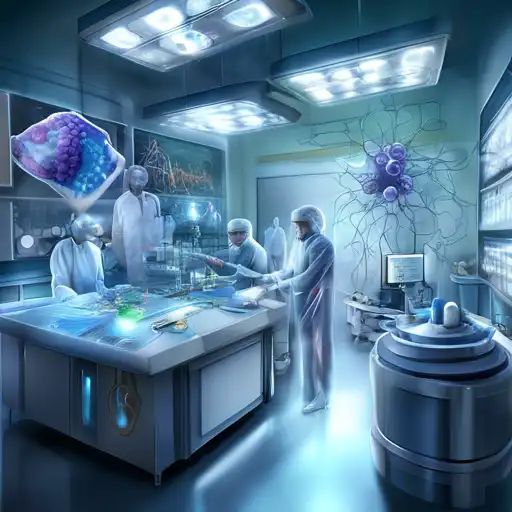Introduction to Nanotechnology in Medicine
Nanotechnology, the science of manipulating matter at the atomic and molecular scale, is set to revolutionize the medical field. With its ability to operate at the same scale as biological molecules, nanotechnology offers unprecedented opportunities for diagnosis, treatment, and prevention of diseases. This article explores the groundbreaking advancements and potential of nanotechnology in medicine.
The Promise of Nanotechnology in Healthcare
Nanotechnology in medicine, often referred to as nanomedicine, involves the use of nanoparticles to deliver drugs, heat, light, or other substances to specific cells in the body. This precision targeting minimizes damage to healthy cells and maximizes the therapeutic effects, offering a new horizon in treatment methodologies.
Key Applications of Nanotechnology in Medicine
- Drug Delivery: Nanoparticles can be engineered to deliver drugs directly to diseased cells, reducing side effects and improving efficacy.
- Diagnostic Techniques: Nanotechnology enables the development of highly sensitive diagnostic tools that can detect diseases at their earliest stages.
- Regenerative Medicine: Nanomaterials are being used to repair or replace damaged tissues and organs, offering hope for conditions previously deemed untreatable.
- Cancer Treatment: Targeted nanoparticle therapies are showing promise in attacking cancer cells without harming surrounding healthy tissue.
Challenges and Ethical Considerations
Despite its potential, the integration of nanotechnology into medicine faces several challenges, including safety concerns, ethical issues, and the need for regulatory frameworks. The long-term effects of nanoparticles on the human body and environment are still under investigation, necessitating cautious optimism.
The Future of Nanotechnology in Medicine
The future of nanotechnology in medicine is bright, with ongoing research paving the way for more innovative applications. From personalized medicine to the eradication of diseases, nanotechnology holds the key to unlocking new possibilities in healthcare. As we stand on the brink of this medical revolution, the potential to improve and save lives is immense.
For more insights into the future of healthcare technology, explore our articles on health tech trends and innovative medical treatments.
Conclusion
Nanotechnology in medicine represents a paradigm shift in how we approach healthcare. With its ability to target diseases at the molecular level, nanotechnology offers hope for more effective treatments and cures. As research progresses, the integration of nanotechnology into clinical practice will undoubtedly transform the medical landscape, making it the next big thing in healthcare.
